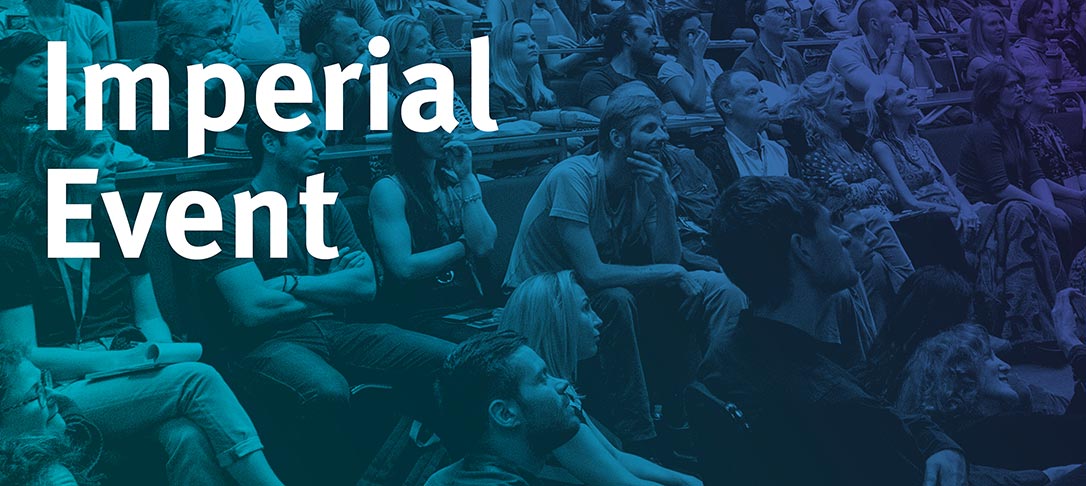
This webinar will be held on zoom. The structure of the event will be a presentation followed by audience Q&A. Please register to be sent the joining instructions. You can pre-submit questions for the Q&A section when registering.
This webinar is part of the series
IMSE Seed-funding 2022 – Projects to Solve Today’s Grand Challenges
Find our more about the IMSE seed funded projects here: https://www.imperial.ac.uk/news/235296/funding-interdisciplinary-projects-solve-todays-grand/
The theme discussed in this webinar will be:
From soil diversity to economic stabilisation (and all that this entails)
Abstract
This IMSE seed funded project explores the links between the influence of intercrop identity and diversity in African palm agricultural systems on the functional biodiversity of the soil and the the effect that these have on the stability and resilience of primary, and secondary, crop production. The socio-economic component explores how resilient agriculture may influence proximate health and development outcomes (such as years in school, income, malaria incidence..) and can feed back to resilient and sustainable agricultural practice We aim to identify research gaps that can help to outline steps which can promote a sustainable African agriculture across scales, from molecular diversity to socio-economics.
Biography
This project is led at Imperial by Vincent Savolainen, the Director of the Georgina Mace Centre for the Living Planet which brings together a multi-disciplinary group of researchers to tackle some of the greatest environmental challenges, and Tilly Collins, a Deputy Director of the College’s Centre for Environmental Policy.
Professor Vincent Savolainen
Professor of Organismic Biology, Faculty of Natural Sciences, Department of Life Sciences
Professor Vincent Savolainen is the Director of the Georgina Mace Centre for the Living Planet, a College initiative that brings together a multi-disciplinary group of researchers to tackle some of the greatest environmental challenges. Professor Savolainen was Deputy Head of the Department of Life Sciences (Silwood Park Campus) between 2013 and 2016. Before joining Imperial College in 2007, he spent nine years as Deputy Head of Molecular Systematics at the Royal Botanic Gardens, Kew. Professor Savolainen is a Fellow of the Zoological Society of London, Fellow of the Linnean Society of London, and a Fellow of the Royal Society of Biology. In 2006, he was awarded the Linnean Society’s Bicentenary Medal. In 2008, he was awarded a European Research Council Advanced Grant, and the following year a Royal Society Wolfson Research Merit Award. In 2014, he was elected a Member of EMBO, and was awarded the Coincy Medal for Botany. In 2015, he was listed in Reuters World’s Most Influential Scientific Minds for publishing some of the greatest numbers of highly cited papers in plant and animal science during 2003-2013. Professor Savolainen sits on various panels and advisory committees, including the UK Natural Environment Research Council Peer Review College and the Royal Society International Committees.
His group combines field ecology, molecular phylogenetics, and population genomic approaches to key societal challenges, from explaining the origin of biodiversity to finding solutions for its preservation in a rapidly changing world. Recent research also tackles COVID19 and its link with the environment.
Dr C M (Tilly) Collins
Senior Teaching Fellow, Faculty of Natural Sciences, Centre for Environmental Policy
I am a senior academic with roles as an Advanced Research Fellow, a Senior Teaching Fellow as well as being Deputy Director of Imperial College’s Centre for Environmental Policy (CEP). My work is interdisciplinary and has a theme of enhancing opportunity for increased ecological, social and economic sustainability in land-use transitions. This work currently across three domains, expansion of viticulture and other tree crops, of palm-crop in West Africa and of greenspace in cities. With broad research interests (including in insects as food and feed), I publish regularly on aspects of Urban Ecology, Entomology and Sustainability.
I also contribute regularly to the wider media on ecological and entomological topics and have appeared on (amongst others) Radio 4’s TODAY and Loose Ends shows, Blue Peter, First News, several ‘Insect Eating’ documentaries and on the pages of many popular and specialist magazines. An enthusiasm for scientific outreach leads me give talks in a wide variety of venues and circumstances.
After studying trees at Merrist Wood Agricultural College and a BSc in Ecology at the University of Sussex, my PhD (2001) was in the ecology of the aphid fauna of willow trees and gives me roots in applied entomology and crop pest biology. After post doctoral appointments in the Department of Environmental Science & Technology (DEST) of Imperial College and in the School of Biology at Leeds University, I returned to Imperial College’s Life Sciences where I remained based until 2012. Whilst there I was the Senior Womens’ Tutor, convened the second undergraduate year for Biology Degrees, several undergraduate modules and the created the popular MSc in Ecological Applications.
My current teaching portfolio covers MSc Quantitative Skills and Ecology. I oversee the CEP’s inter-departmental contribution to the teaching of Natural Resource Management. I am also the Senior Women’s Tutor and have received Rector’s Awards for Excellence in Teaching and for Excellence in Pastoral Care.
In addition to my work at Imperial College, I was a Senior Lecturer in Entomology at Harper Adams University College, consult on sustainability challenges and am an Associate with the Environmental Consultancy, Collingwood Environmental Planning.
About The Institute for Molecular Science and Engineering
The Institute for Molecular Science and Engineering (IMSE) is one of Imperial College London’s Global Institutes, drawing on the strength of its four faculties to address some of the grand challenges facing the world today. The Institute’s activities are focused on tackling problems where molecular innovation plays an important role.
If you have any questions about accessibility requirements please email Leah Adamson (IMSE Events Officer) on l.adamson@imperial.ac.uk